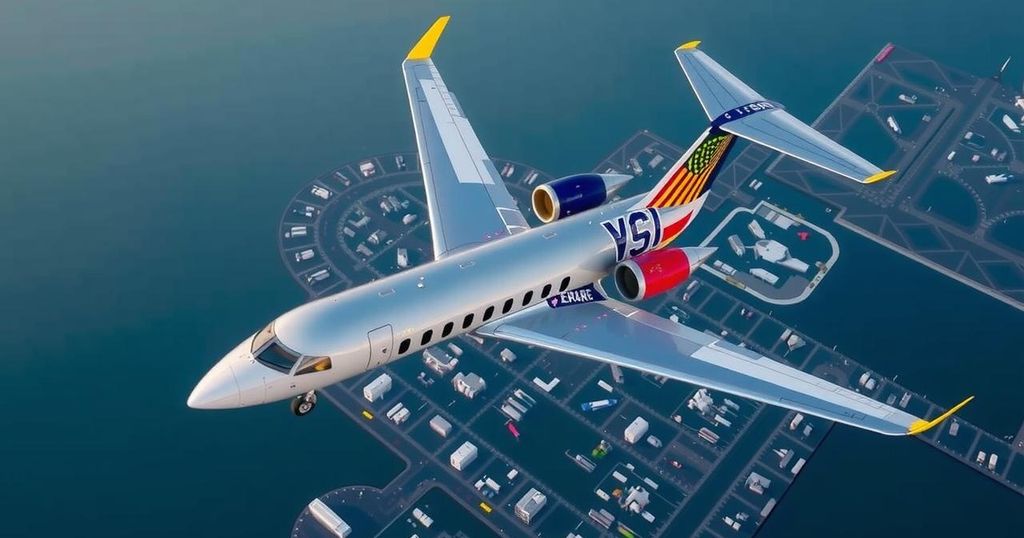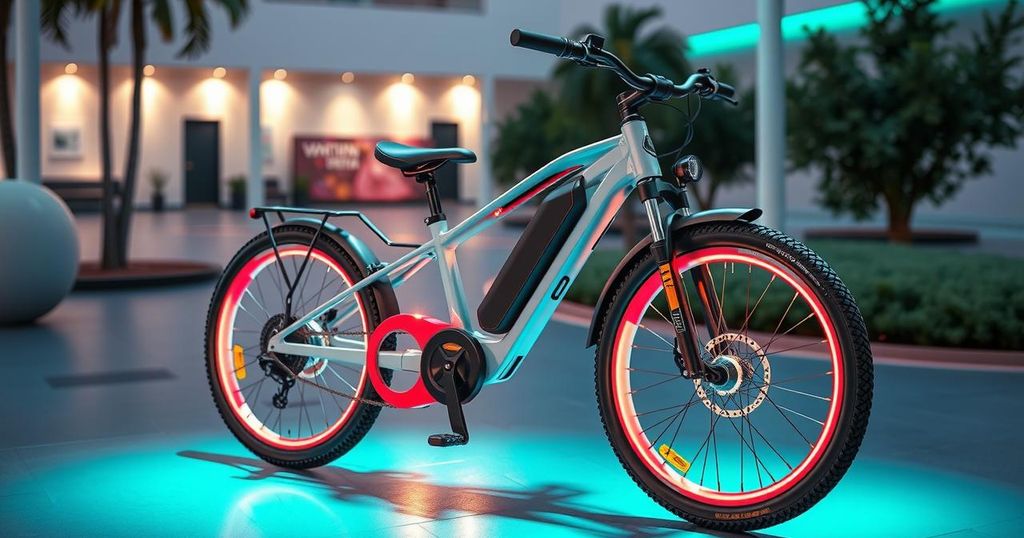Embraer’s Strategic Push into the Chinese Aviation Market
Embraer is aiming to expand E-Jet sales in China as Brazil strengthens its ties with the nation. Despite stating the lucrative potential of the Chinese market, Embraer’s past attempts have been met with limited success. The company’s E190-E2 and E195-E2 jets are positioned to fill market gaps, although previous sales of E2 jets have been modest since their recent certification.
Embraer, the Brazilian aircraft manufacturer, is strategically positioning itself to enhance its sales of E-Jet E2 regional jets to the Chinese market, coinciding with strengthened diplomatic relations between Brazil and China. Although Embraer’s leadership emphasizes the potential for growth in China’s aviation market, previous attempts to penetrate this market have yielded limited success. CEO Arjan Meijer highlighted the compatibility of the E190-E2 and E195-E2 jets with Chinese airlines and their viability alongside domestic competitors like Comac.
During a recent investor day in New York City, Meijer described China’s aviation market as offering significant opportunities. He asserted that the E-Jets complement existing Chinese products, filling a gap in the 80-146 seat segment not adequately served by Comac’s C909 and C919 aircraft. Meijer also pointed out that the E190-E2 is particularly suited for China’s high-altitude regions, such as the Tibetan Plateau.
In alignment with its aspirations in China, Embraer organized a “supplier day” at the Zhuhai air show to foster collaborations with Chinese suppliers and emphasized the importance of Brazil-China relations, particularly after recent economic agreements established between Brazilian President Luiz Inacio Lula da Silva and Chinese President Xi Jinping. In contrast, US-China relations remain tense, with potential tariff increases looming under the incoming US administration that could affect trade dynamics.
However, caution accompanies Embraer’s optimism as historical attempts to solidify commercial ties with China have often met with limited outcomes, as noted by aerospace analyst Richard Aboulafia, who pointed to a historical disconnect between high-level diplomatic intentions and the actual commercial aircraft market. While Embraer has previously secured over 100 sales of first-generation E-Jets to Chinese airlines, its E2 series has yet to gain substantial traction, notwithstanding a recent order from ICBC for 10 E195-E2 jets, reflecting a gradual entry into a relatively new market segment.
The E190-E2 and E195-E2 jets received certification from China’s aviation authorities only in 2022 and 2023, respectively, indicating a nascent but potentially fruitful relationship between the Brazilian manufacturer and the expansive Chinese aviation sector.
The article discusses Embraer’s efforts to enhance its market presence in China amidst a backdrop of increasing political and economic relations between Brazil and China. With Brazil looking to deepen its collaboration with one of its largest trading partners, Embraer sees an opportunity in the increasingly competitive Chinese aviation market, which has historically been difficult for foreign companies to penetrate. Embraer’s strategic focus is particularly on the regional jet segment, wherein their E-Jets could fill gaps left by domestic manufacturers. The complexities of international relations, particularly between the US and China, also shadow Embraer’s pursuit, as geopolitical tensions may influence market dynamics.
In summary, Embraer’s commitment to tapping into the Chinese aviation market signifies a strategic move bolstered by both enhanced diplomatic ties between Brazil and China and the specific positioning of its E-Jet series. Despite previous challenges, the E2 jets offer distinctive advantages that could potentially secure a foothold in this lucrative market. However, skepticism remains regarding the feasibility of significant sales, observing historical discrepancies between political ambitions and commercial realities.
Original Source: www.flightglobal.com




Post Comment